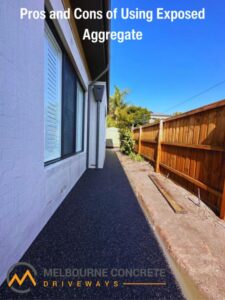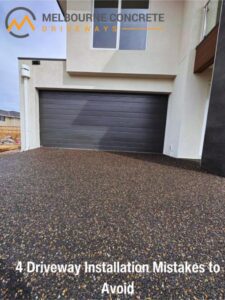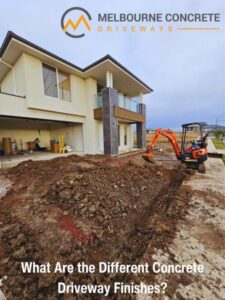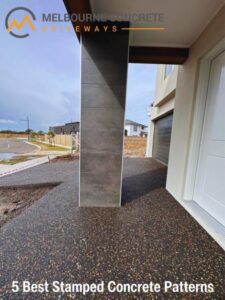Yes, a concrete driveway needs rebar, or steel, to give strength to its slab. Installing rebar adds extra strength and support to the concrete surface, allowing it to handle heavy loads and equipment.
Driveways that are located in areas where the soil is constantly moving may also benefit from using rebar. This type of reinforcement can keep a concrete slab in place and prevent any damage from appearing because of ground movement.
At Melbourne Concrete Driveways, we highly recommend getting advice from an expert when installing a concrete driveway.
In this blog, we’ll expand on the basics of rebar and the common questions associated with using it for concrete driveways.
What is Rebar?
Rebar is short for reinforcing bar, commonly used in the construction industry to strengthen and support concrete structures. Made from steel, it comes in various thicknesses and is often used in tension to improve the tensile strength of concrete, which is inherently strong in compression but weak in tension.
When you lay a concrete driveway, incorporating rebar can significantly increase its durability and load-bearing capacity. This is particularly important in areas subjected to heavy traffic or extreme weather conditions.
Using rebar extends the lifespan of a concrete driveway, making it a wise investment for any construction project.

When Should I Use Rebar in a Concrete Driveway?
You should use rebar in a concrete driveway when:
- It will have heavy loads: If you expect heavy loads or frequent use on your driveway, it’s best to install rebar to support it.
- It’s built in settling or shifting soil: Concrete driveways built in areas where the soil settles or shifts regularly can benefit from having rebar.
- Its size necessitates reinforcement: A bigger or more complex driveway design may need extra reinforcement by installing rebar to make it stable.
What Are the Different Types of Driveway Rebar?
The different types of driveway rebar are standard, stainless steel, galvanised, and epoxy-coated rebar.
A standard rebar is usually used in most residential driveways and is made of carbon steel. Meanwhile, stainless steel rebar can be quite costly due to their extra corrosion resistance. That’s why it’s often not recommended for use in residential properties.
Lastly, galvanised and epoxy-coated rebar are metal rods that are far more corrosion-resistant than the previous ones mentioned. They are also designed to better withstand the elements.
What Happens If I Don’t Use Rebar in a Concrete Driveway?
Not using rebar in a concrete driveway that needs one will lead to a weak, unstable surface vulnerable to cracks. Besides that, water can easily seep into the concrete slab and cause damage to it over time. Adding rebar can prevent all these things from happening.
Furthermore, concrete driveways can be damaged because of soil movement. Installing rebar can hold the slab together and stop it from moving.
Would you like to know how long concrete driveways last? Read our blog about it.






